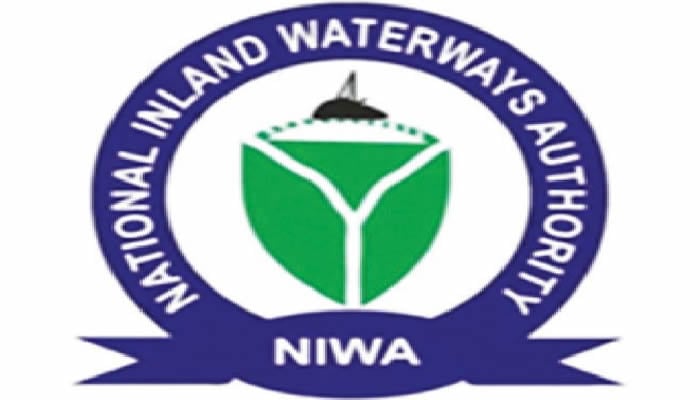The National Inland Waterways Authority has identified ballast water as the major cause of water hyacinth infestation on Nigerian waterways.
The Lagos Area Manager of NIWA, Sarat Braimah, stated this on Monday while addressing journalists during a water hyacinth clearing exercise at the Ipakodo Jetty in Ikorodu, Lagos State.
She said the clearing exercise would last for two months across the state.
Ballast water refers to seawater or freshwater carried in the ballast tanks of ships to provide stability, balance, and structural integrity during voyages. When a ship unloads cargo, it takes in ballast water to maintain proper weight distribution. Conversely, when it loads cargo, the ship discharges that ballast water to maintain safe draft and trim levels.
The main problem with ballast water lies in the transfer of aquatic organisms across ecosystems. When a ship takes on ballast water in one region and discharges it in another, it can release invasive species (plants, animals, bacteria, and viruses) and pathogens harmful to humans and marine life. These organisms can survive the journey and establish themselves in new habitats, often disrupting local ecosystems, outcompeting native species, and causing economic and environmental damage.
Because of these risks, ballast water management is a major focus of international maritime law. The International Convention for the Control and Management of Ships’ Ballast Water and Sediments (BWM Convention, 2004), adopted by the International Maritime Organisation and enforced in 2017, requires ships to manage and treat ballast water to remove or neutralise organisms before discharge and to maintain a Ballast Water Management Plan.
Speaking further, Braimah described the exercise as a critical safety intervention rather than a routine clean-up.
“Water hyacinth, a fast-spreading aquatic weed native to the Amazon Basin in South America, found its way into Nigerian waters through ballast water discharged from ships since the 1980s; now it reappears seasonally between July and December choking waterways, obstructing boats, and impacting fisheries and local livelihoods,” she said.
According to her, the exercise is not just for beautification but for safety.
“If we allow boats to navigate through this invasive weed, their engines will be damaged, and water users will face serious risks,” Braimah said.
She explained that NIWA’s operations are part of the Federal Government’s intervention aimed at ensuring safe navigation and sustaining inland water transport.
The NIWA Lagos Area Manager emphasised that the exercise is a way of giving back to boat operators and commuters who depend on the waterways daily.
She said the Lagos Area Office has deployed heavy-duty machinery, including a Swamp Devil, which cuts through dense vegetation to clear navigation channels and restore safe passage for ferries and cargo boats.
Braimah stressed that beyond Lagos, the clearance campaign will extend to Bayelsa, the Niger Delta, and other NIWA area offices as the agency tracks the weed’s movement through river currents.
“We are monitoring the flow as the weed moves, our teams move with it,” Braimah explained, hinting that there is ongoing research and collaboration to turn the challenge into an opportunity.
“Research is ongoing to establish a centre that will help us convert this menace into useful products,” she said, adding that NIWA and the Lagos State Waterways Authority are collaborating to ensure comprehensive clearance efforts.
Despite the recurring nature of the weed, Braimah assured that NIWA’s proactive response this year will minimise disruptions.
“We may not completely eradicate it, but we are determined to tackle it each time it appears,” she affirmed.
Recall that NIWA, in a statement on Friday, said it had deployed a task force to map out strategic operational measures aimed at tackling the buildup of water weeds, popularly known as water hyacinth, around the Ikorodu axis.
NIWA explained that the move was part of proactive efforts to prevent the menace from disrupting boat transportation and other waterway activities in littoral communities.















